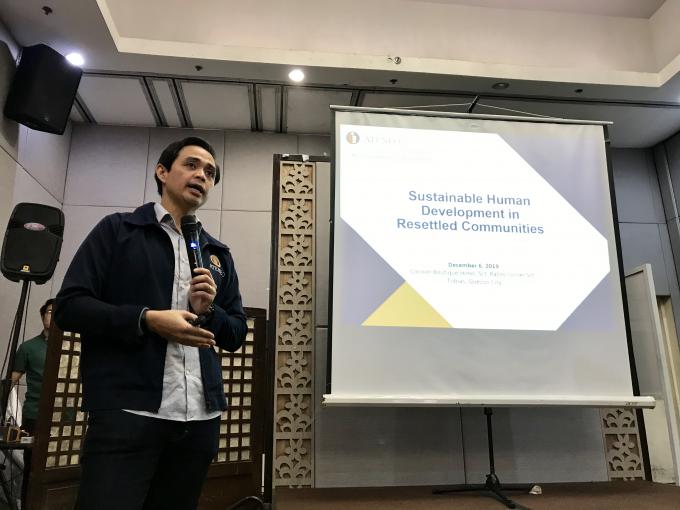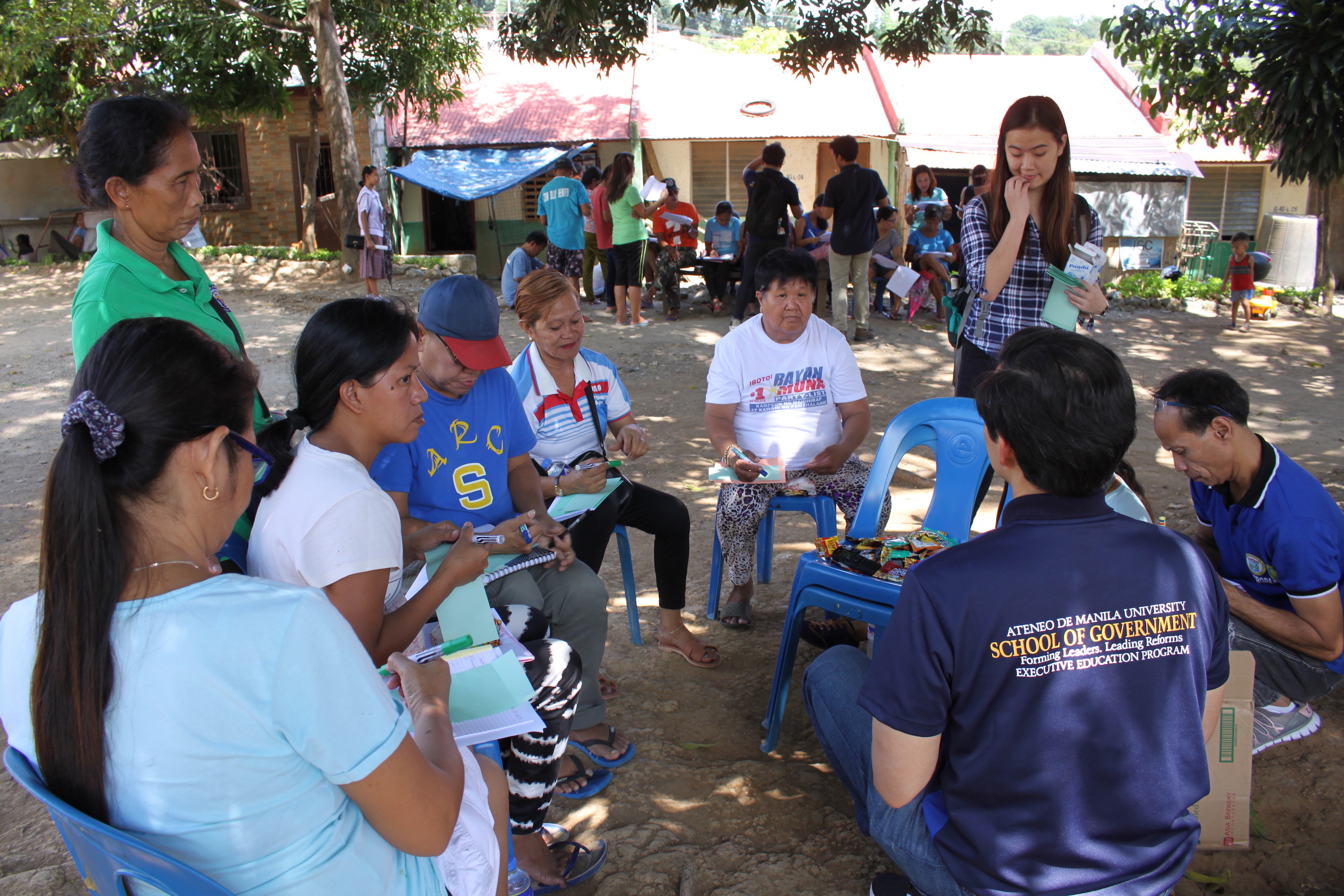ASoG presents results of the DILG Resettlement Governance Project
12 Oct 2019 | Ateneo de Manila University
ASoG-ExecEd Resettlement Governance Project Team, led by ASoG faculty, Dr. Lloyd C. Bautista, together with research staff Frances Crisostomo and Kyle C. Dela Cruz, made a public presentation of the integrated results of the six (6) case studies of resettlement sites that were covered by the Department of the Interior and Local Government’s Resettlement Governance Assistance Fund (RGAF). It was held last December 6, 2019 at the Cocoon Boutique Hotel, Quezon City during the (RGAF) Quarterly Assessment.

The case studies aimed to systematically assess and measure the performance of resettlement sites across six performance dimensions pertaining to living conditions and quality of life of Informal Settler Family (ISF) beneficiaries. The team identified metrics that would indicate the suitability and desirability of the settlement site in terms of 1) geographical location, 2) housing and resettlement specification and design, 3) social services and community facilities, 4) safety, security, and strength of social linkages, 5) livelihood and economic opportunities, and finally 6) governance and development policies. The study employed triangulation techniques via focus group discussions, perception surveys, and direct observation as strategies for data collation.
The study showed statistically significant differences in the perceptions of the local government implementers, on one hand, and informal settler families, on the other hand, across all performance metrics, but most significantly for livelihood and economic opportunities. While recognizing the sincere efforts of the local government implementers to focus on livelihood trainings and infrastructure with the help of national government agencies, the study discovered a strong need to strengthen such efforts and to sharpen such strategies to ensure an impact on this dimension. In addition, the study showed that ensuring access to employment and product markets prior to relocation, as part of creating a conducive and enabling environment, is essential to prevent ISF beneficiaries from returning to the urban slum areas. This was a critical factor that contributed to the overall divergence in perceptions between local government implementers and informal settler families. A purposive emphasis therefore on alignment of preparations and plans and an insistence on participatory governance were key recommendations of the study.

As for the study’s ultimate conclusion, ASOG faculty Lloyd Bautista says, “The supply of decent, affordable, and disaster-resilient housing and resettlement is an instrumental objective, but not essentially our ultimate outcome. The end in mind is the transformation of the human person from one who is poverty-mired, helpless, and trapped in a dole-out mentality, to ultimately one who has dignity, is self-reliant, and possesses a strong sense of common solidarity with humanity.”





